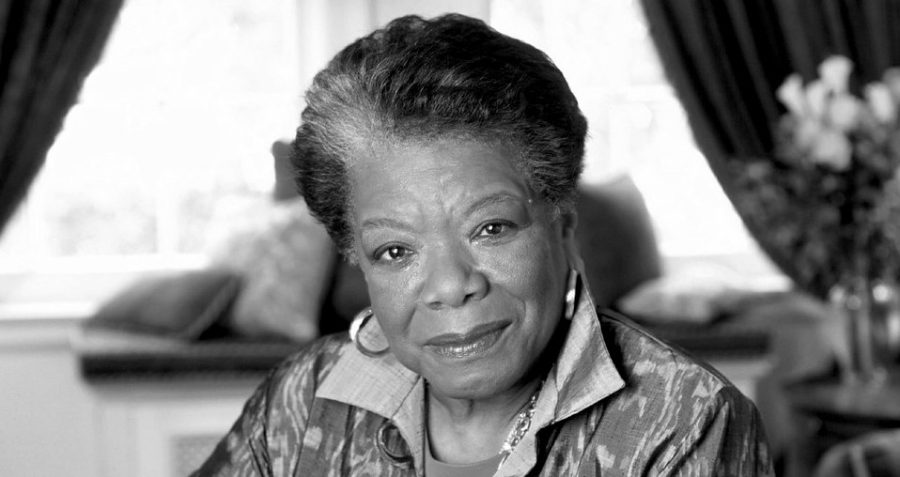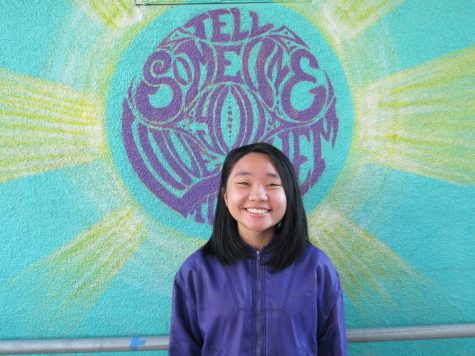Maya Angelou
In honor of Black History Month, every school day The Cardinal will feature a prominent and historical Black American, living or dead, who has worked toward change, advancement, and/or world peace. Some of them are heroes, and some are unsung heroes, who deserve recognition, and have made a contribution to society.
February 10, 2022
Maya Angelou was an African American poet and writer, civil rights activist, dancer, singer, songwriter, playwright, film director, and actor. She was born on April 4, 1928 as Marguerite Annie Johnson in St. Louis, Missouri to Bailey Johnson and Vivian Johnson. Her brother, Bailey Jr., gave her the nickname “Maya” from “Mya sister.” She would later adopt the name “Maya Angelou” from this nickname and the last name of a divorced lover.
When Angelou was young, her parents went through a difficult divorce, during which she was sent to her grandmother’s house. In her adolescence, after being sent back to her mother’s house, she experienced sexual abuse at the hands of her mother’s boyfriend. After she told her family, the boyfriend was tried and found guilty, but was only jailed for one day. However, shortly afterwards, he was murdered, most likely by one of Angelou’s relatives. For 5 years, Angelou chose to go mute, as she believed, “…my voice killed him; I killed that man, because I told his name. And then I thought I would never speak again, because my voice would kill anyone.” It was a close teacher who would later challenge her and help her regain her voice again.
As a young adult, Angelou worked in various occupations ranging from fry cook to sex worker, to a performer for the opera “Porgy and Bess.” She moved to New York City to join the Harlem Writer Guild, a long established organization for African-American writers, where she first got published.
Angelou was friends with and worked alongside notable civil rights activists such as Martin Luther King Jr. and Malcolm X. In 1960, she staged a successful revue (– a satirical series of short skits and routines) called “Cabaret for Freedom” in New York to fund the civil rights movement. At Martin Luther King’s recommendation, she was appointed as the Northern Coordinator for the Southern Christian Leadership Conference, where she worked to fundraise and organize events.
Angelou later moved to Africa to be with a lover who worked there, where she was an associate editor for The Arab Observer, an English-language weekly newspaper. She was present in Africa during its decolonization (– when African states started to gain their independence from European colonial rule).
Years later, Angelou returned to the United States, where she wrote her first memoir, “I Know Why the Caged Bird Sings,” in 1969, which explored her life up to her adolescence. It was the first installment of what would be a seven-volume autobiographical series, and it was received with international acclaim. Over the years, her series would explore themes such as racism, family, and sexual abuse.
Some of Angelou’s notable influences and friends included James Baldwin, a well-known writer and activist, and Oprah Winfrey, now an extremely successful talk-show host. Baldwin encouraged her in her writing pursuits (supporting her when she wrote her first autobiographical book) and Winfry was a close friend of Angelou’s.
Among the many distinctions Angelou earned over her lifetime include more than fifty honorary awards, three Grammy awards, and a Pulitzer prize and Tony nomination. She was honored with the highest civilian award, the Presidential Award of Freedom, by President Obama in 2010.
Angelou died on May 28, 2014, at the age of 86, but her legacy remains in her work and her status as a widely respected literary icon.


